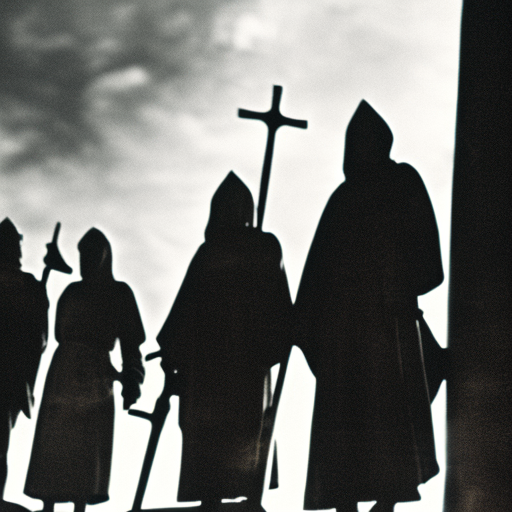The Crusades: A Series of Holy Wars
The Crusades were a series of holy wars fought between Christians and Muslims in the Middle Ages. These wars were launched by the Catholic Church with the goal of reclaiming the Holy Land from Muslim control. The Crusades spanned from the 11th to the 13th centuries and had a profound impact on European history.
First Crusade (1096-1099)
The First Crusade was the most successful of all the Crusades. It was launched in response to a plea for help from the Byzantine Emperor Alexios I, who feared the expansion of the Seljuk Turks. Led by prominent European nobles, the Crusaders captured Jerusalem in 1099, establishing the Kingdom of Jerusalem.
Second Crusade (1147-1149)
The Second Crusade was launched in response to the fall of the County of Edessa to the Muslims. Led by King Louis VII of France and Emperor Conrad III of Germany, the Crusaders aimed to recapture Edessa. However, the campaign ended in failure, with the Crusaders suffering heavy losses.
Third Crusade (1189-1192)
The Third Crusade was a response to the fall of Jerusalem to the Muslim leader Saladin in 1187. Led by Richard the Lionheart of England, Philip II of France, and Frederick I Barbarossa of Germany, the Crusaders aimed to retake Jerusalem. Despite some victories, the Crusaders ultimately failed to achieve their objective.
Fourth Crusade (1202-1204)
The Fourth Crusade took an unexpected turn when the Crusaders diverted their efforts towards the Christian city of Constantinople. Motivated by financial gain and political rivalries, they sacked the city in 1204, causing irreparable damage to the Byzantine Empire. This diversion weakened the Crusader cause and further strained relations between the Eastern and Western Christian churches.
Later Crusades
Subsequent Crusades, such as the Fifth, Sixth, and Seventh Crusades, were launched with the aim of recapturing Jerusalem. These Crusades achieved limited success, with the Crusaders gaining temporary control over some territories but failing to establish a lasting Christian presence in the Holy Land.
Legacy of the Crusades
The Crusades had a lasting impact on European society. They led to increased trade between Europe and the Middle East, introducing Europeans to new goods and ideas. The Crusades also contributed to the decline of feudalism as many nobles sold their lands to finance their participation in the holy wars.
The Crusades also had significant religious consequences. The Catholic Church gained power and influence as it organized and led the Crusades, while the Eastern and Western Christian churches grew further apart due to the Fourth Crusade’s sacking of Constantinople.
Additionally, the Crusades fueled religious intolerance and hostility towards Muslims, leading to centuries of conflict between Christians and Muslims. The legacy of this animosity can still be felt in modern times.
Conclusion
The Crusades were a series of holy wars fought between Christians and Muslims in the Middle Ages. They had a profound impact on European history, leading to increased trade, the decline of feudalism, and religious consequences. While the Crusades ultimately failed to achieve their objective of permanently recapturing the Holy Land, their legacy continues to shape the world today.












